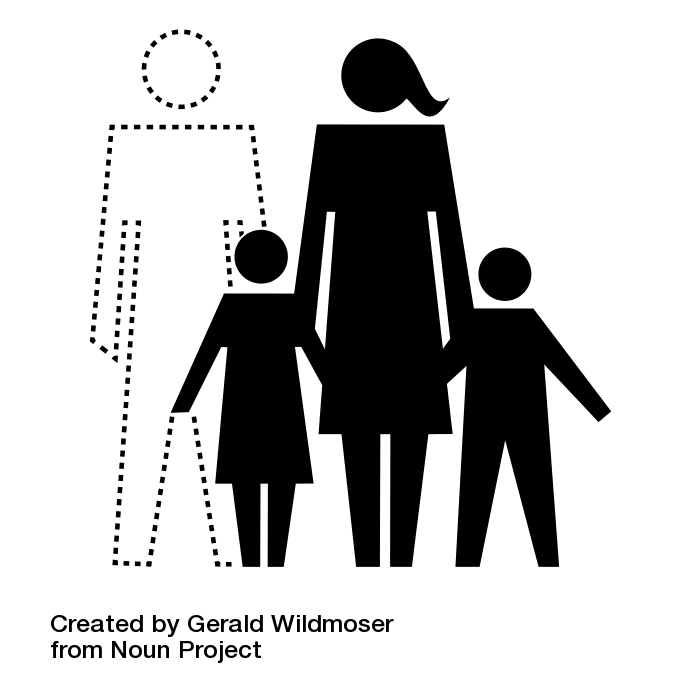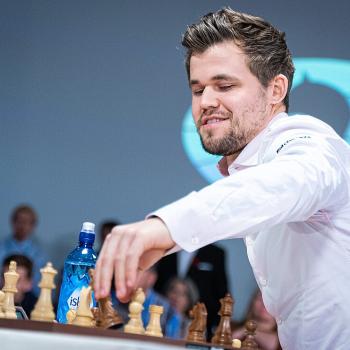In this new article, she applies those insights to today’s identity politics and violent protests. The latter, she says, are quite different from other protests, even other violent protests. We have not seen before the tactic of protesters harassing families as they are eating together at restaurants or descending upon the homes of individuals whose views they are protesting.
Eberstadt notes the repudiation of the nuclear family in the Black Lives Matter manifesto and how a common thread among the mostly-white members of Antifa is coming from a broken home. She argues that the lack of a father figure in young people’s lives manifests itself in the search for a replacement that can create a sense of psychological identity, as fathers and family life used to. This substitute can come from the macho world of gangs, from adherence to a radical ideology, or from embracing some identity group, whether based on ethnicity, sex, or gender. This phenomenon can be seen not only on the Left but on the Right, with White Supremacists and Alt.right extremists.
She says that the experience of having been abandoned by one’s father–which is almost the norm in all of these groups, whether because of divorce, desertion, or never knowing one’s father at all–can manifest itself in rage against fatherhood itself, along with traditional families, and in the demonization of “patriarchy.”
Former English professor that I am, I especially appreciated Eberstadt’s use of the character Edgar in Shakespeare’s King Lear, the illegitimate son of Gloucester. He responds to the lack of his father’s affection by taking a horrible vengeance on the old man and on the family that he yearns to be a part of.
There is much more to the article, which defies excerpting. I urge you to read it in its entirety. This is from the opening. Start here and then click “keep reading”:
The ritualistic exhibition of destructive behaviors in city after city is without precedent in America. Neither the civil rights demonstrations nor the protests against the war in Vietnam looked remotely like this. The differences demand explanation. Blame what you will on the usual bête noirs: Donald Trump, cancel culture, police brutality, political tribalism, the coronavirus pandemic, far-right militias, BLM, antifa. All these factors feed the “demand” side of the protests and rioting, the reasons for the ritualistic enactment. But what about the “supply” side—the ready and apparently inexhaustible ranks of demonstrators themselves? What explains them?
The answer cannot be “racism.” The spectacle of often-white protesters screaming at sometimes-black policemen undercuts anything dreamed of by Critical Race Theory. So do the actual statistics concerning cop-on-black crime. So do public attitudes. In 2017, according to Pew Research, 52 percent of respondents said that race “doesn’t make much difference” in marriage, and another 39 percent said that interracial marriage is “a good thing.” When 91 percent of the public shrugs at or applauds interracial marriage, it is absurd to speak of a spectral racism that permanently and irredeemably poisons society.
So, here’s a new theory: The explosive events of 2020 are but the latest eruption along a fault line running through our already unstable lives. That eruption exposes the threefold crisis of filial attachment that has beset the Western world for more than half a century. Deprived of father, Father, and patrium, a critical mass of humanity has become socially dysfunctional on a scale not seen before.
[Keep reading. . .]
I want to stress, though, that it doesn’t have to be this way. For those without a father, God Himself can fill that void:
Father of the fatherless and protector of widows
is God in his holy habitation.
God settles the solitary in a home;
he leads out the prisoners to prosperity,
but the rebellious dwell in a parched land. (Psalm 68:5-6)
Image: Orphans by Gerald Wildmoser from the Noun Project. Creative Commons License 3.0.
 Mary Eberstadt has written an important article in First Things entitled The Fury of the Fatherless.
Mary Eberstadt has written an important article in First Things entitled The Fury of the Fatherless.












